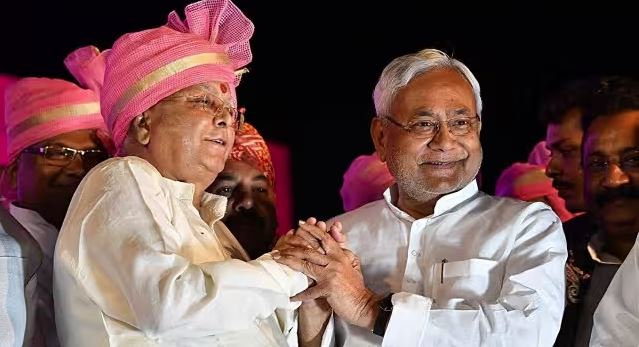(Guru Prakash)
Bihar has been the seat of learning for a long time. The phrase, “mother of democracy” is appropriate for the state. Vaishali witnessed the emergence of the republic and the idea of collective decision-making under the Licchavi state. During the national emergency too, Bihar became the epicentre of the movement against the tyranny of the state. The caste survey has been released and has naturally, generated euphoria within a section of the INDI Alliance. The Nitish Kumar-led Mahagathabandhan, with the support of the Bharatiya Janta Party, initiated this exercise.
The point is that both Nitish Kumar and Lalu Prasad have failed to ensure equitable representation of marginalised sections in positions of power and authority. Bihar has seen the collective rule of both over the past few decades. Karpoori Thakur and Ram Sundar Das, both former Chief Ministers of Bihar fit in the case of betrayal of Lalu for the EBC and Dalits. They were insulted and faced multiple hurdles at his behest.
For the first time in our history, India witnessed the rise of a woman from the tribal community to the highest constitutional office in the country. More than 35 per cent of the members of the Union Council of Ministers are from OBC communities. The BJP did not need a caste survey to appoint a Dalit, Bangaru Laxman, the first president from the SC community. It was the BJP-led NDA that paved the road for the first Dalit speaker in the Lok Sabha with G M C Balayogi. India has become the fifth-largest economy in the world — we have become the first nation to land near the Lunar South Pole, in record time and budget, under the leadership of one of the most powerful prime ministers in recent times. Narendra Modi also comes from the EBC community. There are innumerable examples where representation has ensured dignity for the most marginalised sections. Right from Padma awards to presidential nominations to Rajya Sabha, there has been an unprecedented rise in the inclusion index.
The survey report does speak about the share of different communities in the population of the state. One Dhanuk caste that comprises more than 2 per cent of the state was never accorded representation in the legislatures. Shambhu Sharan Patel, from the Dhanuk community, was sent to the Rajya Sabha by the BJP in Bihar. Many other communities will come to light once the report is deeply analysed.
It is well known that Nitish Kumar’s party JD(U) is made around one caste and one individual. Similarly, RJD is a fiefdom of one family and the politics of RJD has been built on the edifice of social faultlines. There will be questions asked of them as they have claimed to represent the broader OBC segment for more than three decades now.
However, the Bharatiya Janta Party has always operated on the idea of antyodaya — the upliftment of the last person in the line. Social justice is the default setting of the BJP, unlike other family-based political enterprises. The INDI Alliance’s excitement will soon turn into anxiety as there will be legitimate demands from the castes that have been betrayed by Yadav and Kumar. For Lalu, social justice starts and ends with his family. Tejashwi Yadav is the Deputy Chief Minister, Tej Pratap Yadav is the Health Minister, Misa Bharati is a Rajya Sabha MP and Rabri Devi is a leader in the Bihar legislative council. Even the poor and the marginalised within the Yadav community are not being accommodated and the claim is of the entire Garib Gurba Samaj. Nitish Kumar has failed to cultivate a second-generation leadership in his political party owing to his deep-seated insecurities. From George Fernandes and Sharad Yadav to R C P Singh, everyone has become a victim of Nitish’s politics of one-upmanship.
The people of Bihar can now see through the historical trajectory of Nitish and Lalu’s betrayal and are in no mood to spare them in the coming elections.
(The writer is Assistant Professor of Law at Patna University and National Spokesperson, BJP)

